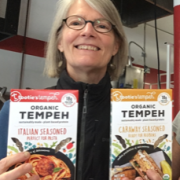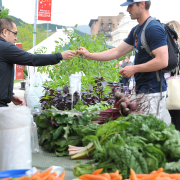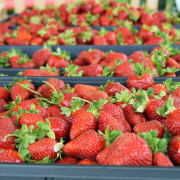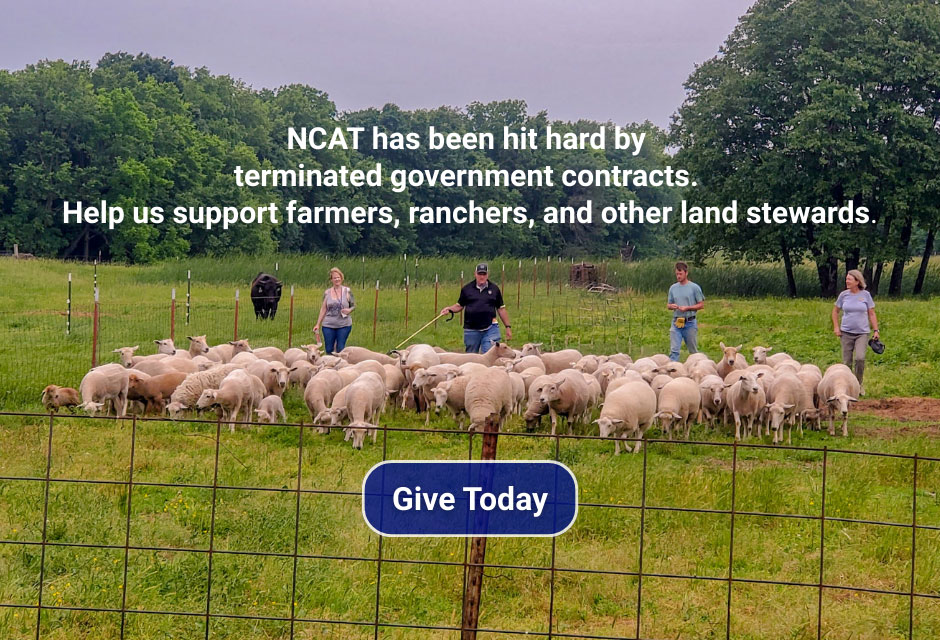Connecting a Tempeh Producer and Northeast Health Care Groups to Get Local Protein in Hospitals
The word soybeans might conjure up pictures of fields with rows upon rows of the popular commodity crop. But for Sarah Speare, a founder of Tootie’s Tempeh in Biddeford, Maine, soybeans are the protein in a traditional meat substitute that offers plenty of health benefits.
Not everyone has heard of tempeh. “It’s a super food,” Sarah says. It’s incredibly high in protein and nutrients. It’s fermented, so it’s good for your gut. And it’s made from just three simple, clean ingredients: soybeans, vinegar, and starter culture. So, people need to eat it!”
NCAT’s sustainable agriculture team and two other organizations – Health Care Without Harm and the Plant Forward Future Project – partnered to form a producer cohort in the Northeast to develop and market plant-based proteins to hospitals. The project is funded by a USDA Specialty Crop Block Grant, and Sarah is part of the producer cohort.
“NCAT/ATTRA has been a great partner and advocate for our work through a podcast we did with them and especially through their programs that support the sourcing of organic grains and legumes from Maine farmers,” Sarah says.
“Their work with the Hospital Without Harm initiative has also helped us get more visibility as a healthy locally sourced protein in front of potential customers who make decisions for what workers and patients are offered at hospitals. We have also enjoyed working with them to make a Maine event happen that includes sampling our food and a tour of our facility.”
Tootie’s Tempeh developed a method for fermenting its product in metal pans instead of single-use plastic bags, which is the practice of much of the industry.
The company uses organic soybeans and sources them regionally, and it is developing a franchise structure that creates a network of other regional production facilities. That allows the tempeh from Tootie’s to have regional suppliers regardless of where its stores are created.
Tootie’s Tempeh reflects Sarah’s values – that “essential food can help support the well-being of people, animals, and the planet.”
It’s also organized as a worker-owned cooperative, as Sarah puts it, “to help support a more democratic economy where workers are the decision makers and share in the profits.
“I viewed (tempeh) as a sleeping giant ready to be woken up,” she adds. “Plant-based protein are skyrocketing, and consumers are eating more for their health and to decrease their carbon footprint. It really seemed like the right time to help tempeh become a household staple.”


 Canva Pro
Canva Pro NCAT
NCAT NCAT
NCAT
 Courtesy Carol Ann Fugali
Courtesy Carol Ann Fugali
